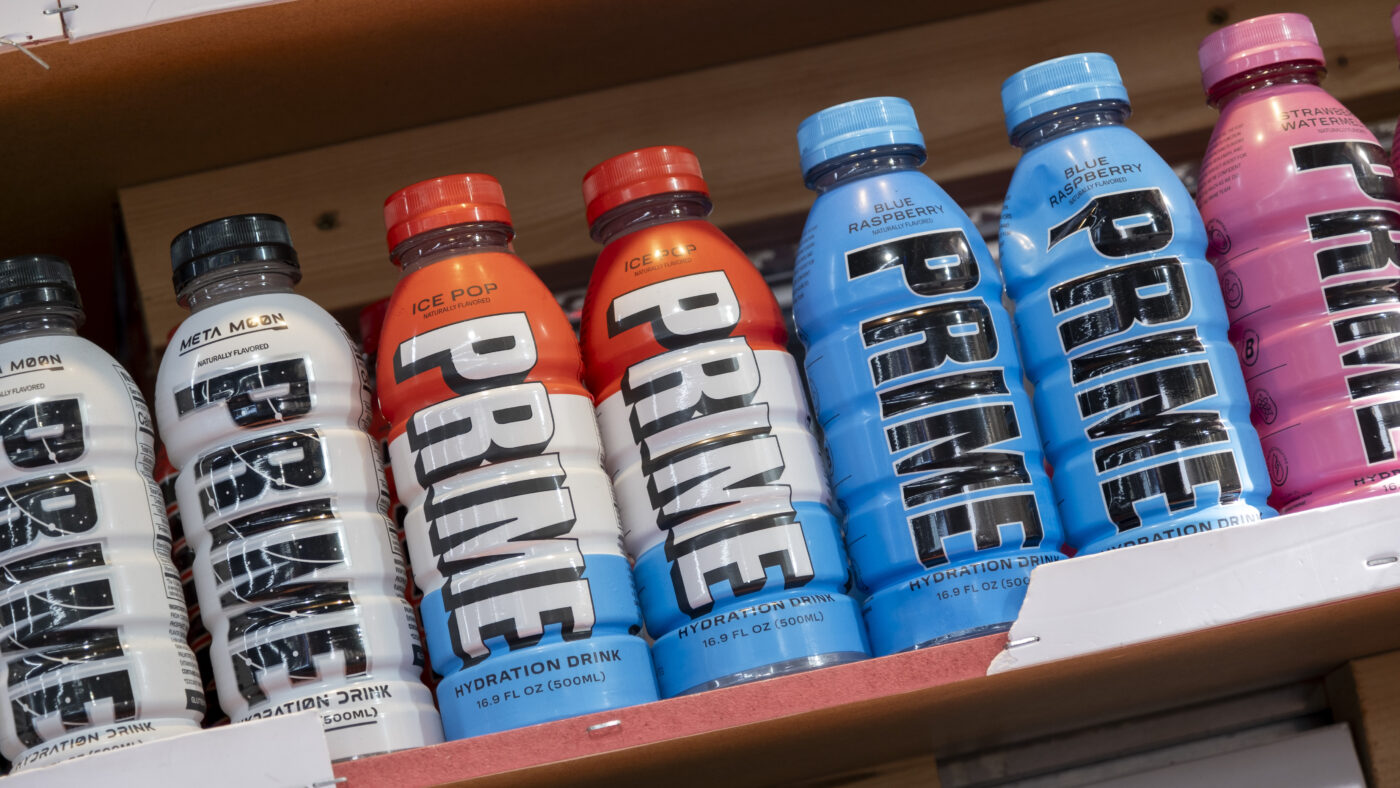Our strict approach to Covid seems to have emboldened a class of public health policymakers who dedicate their lives to running all of ours. Just weeks after the Prime Minister announced his ban on disposable vapes, rumours are spreading that Labour are considering a manifesto pledge of banning energy drinks for under-16s. Consumed by wanting ‘to do the right thing’, we persist with the mistaken belief that government policy will effectively regulate obesity, addiction and other poor lifestyle choices out of existence.
The nanny state panjandrums seem to have found relevance in overregulating. Starmer in particular has a well-deserved reputation for indulging any orthodoxy that champions ‘social responsibility’, and is willing to implement a wholly unworkable policy that falls apart under scrutiny, so long as it satisfies Labour’s demand for fashionable optics. Having gone after most addictive agents already, energy drinks are the next obvious target.
Caffeine is a rare example of a product that is advertised to be more harmful than it actually is. Energy drinks rely on their over-hyped unique selling point of being potent enough to ‘give you wings’ as a way to distinguish them from other fizzy drinks, such as Coke. The reality is, caffeine is a very mild and temporary stimulant following a similar chemical process to an adrenaline rush. Indeed, in blind trials, people considered a cocktail labelled ‘Red Bull-vodka cocktail’ to be more intoxicating than a drink marked ‘vodka cocktail’, despite the fact all the drinks were identical. This placebo effect would suggest that the actual effects of moderate caffeine consumption are exaggerated. Naturally, excessive consumption of anything is harmful – too much water has the capacity to be lethal – but, particularly in terms of caffeine, contextualising these numbers is important. After all, it only takes one mug of coffee to put you at the same amount as one of these horrifying energy drinks.
One of the motivations cited for this potential ban is, as well as caffeine, the high amount of sugar in these beverages, already voluntarily prohibited for children by most supermarkets. Sugar has already been targeted with the so-called soft drinks levy. Marketed as the solution to the obesity crisis, a crisis arguably exacerbated by the continuous lowering of weight classifications, the sugar tax has predictably prompted little change in consumer behaviour. A recent study looking at the effect of the sugar tax on sugar consumption found the impact to be an infinitesimal reduction of just 8 grams per household per week. This, however, did not stop public health researchers from linking a decrease the equivalent of half a teaspoon to a decline in childhood hospital tooth extractions.
But the distortion of the numbers doesn’t end there. Research by UCL and the University of York found that what is touted in the media as children drinking these drinks ‘regularly’ is actually that up to a third of children in the UK are drinking these energy drinks only once a week, which would put them well under the recommended guideline for daily caffeine consumption. They further suggested that, like other addictive agents, markers such as socio-economic background, may have influenced this data. However, admitting that there might be external factors that are responsible for these trends would then prevent the public health lobby from blaming the issues exclusively on pernicious corporations and industries.
Moreover, when you look at sin taxes on other ‘dangerous drinks’, such as minimum alcohol pricing in Scotland, they had the opposite effect of the desired effect. Ultimately, the measure failed to markedly reduce alcohol-related harms and pushed the heaviest drinkers to cut back on food to afford booze. Worse still, alcohol-related deaths are now at a 14 year high at Scotland. The nanny state falsely assumes that people will behave in the way the policy wants them to. But what that so often means is, rather than policymakers admitting they got it wrong, bolstering the measures and claiming they didn’t go far enough.
This is in part because the critical examination of evidence is no longer considered prudent practice, but instead, inertia in the face of a ‘public health emergency’. When asked on Radio 4 why these drinks were so addictive to young people, Dr Chris Van Tulleken revealed ‘I don’t think we entirely know’, yet spent the remainder of his air time advocating to ban them. If the threshold of evidence to call for regulation of something is this low, then who know what could be banned next? Another product that was considered dangerously harmful to children was ‘addictive’ video games, and for years we restricted the sale of them, pandering to the hysteria that ‘shoot ‘em ups’ were creating a generation of serial killers. We have since seen no correlation between real-world aggression and the sale of violent video games.
For a moment, imagine what it would be like to go into a supermarket under a Labour government. Alcohol and cigarettes behind screens, ultra-processed foods completely unreachable, and no food by the checkout to lead us into temptation. This era of state-sponsored shopping is nothing more than a performative gimmick, given there is no evidence prohibition has ever worked. The more responsibility we give the state over our health, the more it reveals itself to be an inattentive doctor who ought to consider retirement.
Click here to subscribe to our daily briefing – the best pieces from CapX and across the web.
CapX depends on the generosity of its readers. If you value what we do, please consider making a donation.


